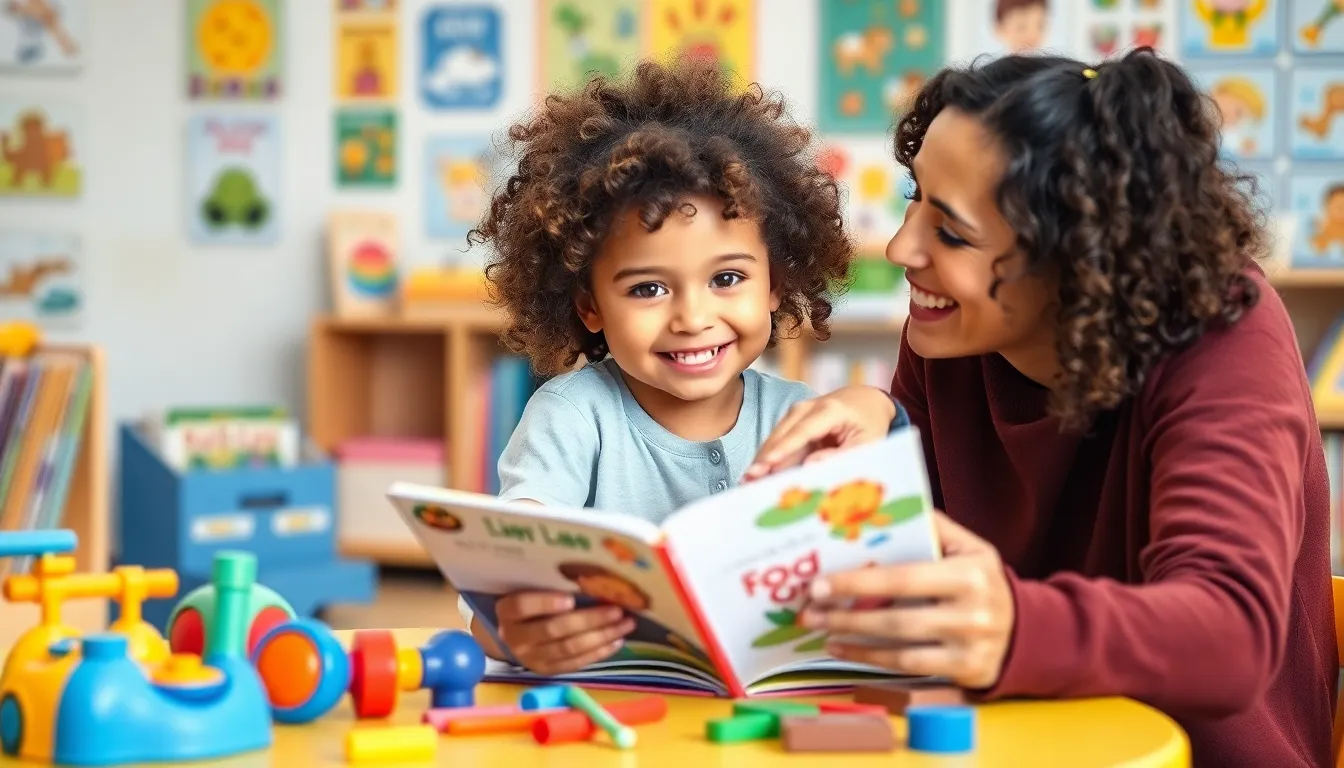Table of Contents
ToggleKids are naturally curious, and when it comes to language, their questions can be both hilarious and profound. From asking why the sky is blue to pondering why adults say “let’s table that discussion,” their inquiries often leave parents scratching their heads or bursting into laughter. These language questions not only showcase their growing intellect but also present a golden opportunity for learning and bonding.
Navigating the world of language with kids can feel like trying to catch a slippery fish. But fear not! This article dives into those quirky questions that kids ask, offering insights and answers that’ll make both kids and parents feel like language wizards. So buckle up for a fun ride through the whimsical world of children’s language queries, where every question is a chance to spark imagination and foster communication skills.
Understanding Language Development in Kids
Language development is crucial in a child’s growth, fostering communication and social interaction. Parents play a key role in this journey by engaging with their kids’ curiosity about language.
Importance of Language Skills
Language skills form the foundation for academic success and social interaction. Effective communication enhances a child’s ability to express thoughts, ask questions, and build relationships. Engaging in conversations encourages vocabulary expansion, leading to better comprehension. Research indicates that children with strong language skills tend to excel in reading and writing. Encouraging questions creates an environment of learning, allowing for deeper connections between parents and children. Regular dialogue supports cognitive development and critical thinking.
Stages of Language Acquisition
Language acquisition occurs in distinct stages, each unique to a child’s development. The first stage, called pre-linguistic, typically involves cooing and babbling, laying the groundwork for future speech. Next, children progress to single words, often expressing needs and desires with a few simple terms. From approximately 18 months, kids begin to formulate two-word combinations, demonstrating an understanding of syntax. As they approach age three, vocabulary expands dramatically, leading to more complex sentences. Finally, by age five, most children can hold conversations and grasp the basics of grammar. Recognizing these stages helps parents track progress and encourage effective communication.
Common Language Questions Kids Ask


Children frequently ask questions about language, showcasing their curiosity and eagerness to understand the world. This section explores two common inquiries that often arise.
Why Do Words Have Different Meanings?
Many kids wonder why a single word can hold multiple meanings. The concept of homonyms often confuses young learners. For instance, the word “bark” can refer to both a tree’s outer covering and the sound a dog makes. This variation exists because language evolves over time, with cultural influences shaping it. Nuances and context determine how words are understood. Educators encourage examples to clarify meanings, helping bridge these gaps in comprehension.
How Do I Use Words Correctly?
Questions about correct word usage arise often. Kids may ask about grammar rules or sentence structure. Understanding subject-verb agreement is essential for constructing clear sentences. Sentence variety also enhances writing quality, such as using simple, compound, and complex sentences. Encouraging practice through writing exercises allows children to explore language freely. Vocabulary enhancement tools, like flashcards, can support their learning. Engaging discussions about word usage foster a strong foundation for effective communication.
Encouraging Language Exploration
Encouragement fosters language exploration in children. Parents can significantly impact their children’s curiosity by utilizing specific techniques.
Techniques for Parents
Modeling language use is essential. Conversations at home should be rich and varied. Frequent reading together promotes vocabulary acquisition. Parents can ask open-ended questions, stimulating critical thinking and dialogue. Listening attentively to children’s responses validates their thoughts, encouraging further elaboration. Incorporating new words into daily conversations enhances their understanding. Additionally, using relatable examples helps clarify complex ideas. Engaging in role-playing scenarios allows children to practice language skills in a fun manner.
Activities to Enhance Language Skills
Interactive games serve as excellent tools for language development. Word games, like Scrabble or Boggle, boost vocabulary while promoting strategic thinking. Storytelling encourages imagination and creativity. Parents can create story prompts to spark children’s narratives. Arts and crafts projects can tie in language skills, where labeling or describing objects reinforces vocabulary. Engaging in group discussions about everyday topics builds confidence in expressing opinions. Watching educational shows together can introduce new language concepts. Singing songs helps with pronunciation and rhythm, making learning enjoyable.
Resources for Further Learning
These resources support children’s language development while nurturing curiosity and engagement.
Books to Read
Selecting engaging books enhances language skills while expanding children’s understanding. Picture books, like “Brown Bear, Brown Bear, What Do You See?” by Bill Martin Jr., offer repetitive text that aids memorization and recognition. Classic tales, such as “The Very Hungry Caterpillar” by Eric Carle, expose children to vocabulary and sequencing. Exploring diverse genres, including poetry and non-fiction, stimulates inquisitiveness while introducing new language concepts. Authors like Mo Willems create relatable characters that encourage questions about language and communication. Reading together fosters connections and discussion, bridging gaps in understanding and vocabulary.
Online Tools and Games
Interactive websites serve as powerful language-learning tools. Platforms like ABCmouse provide age-appropriate activities and games designed to build vocabulary and grammar skills. Other resources, such as Starfall, engage children with stories and phonics exercises, reinforcing language fundamentals. Educational apps, like Endless Alphabet, introduce new words through entertaining animations and puzzles. Games like Scrabble and Boggle promote critical thinking while enhancing spelling and vocabulary in a fun way. Utilizing these resources helps parents support their children’s language growth in an enjoyable atmosphere while encouraging self-directed learning.
Language questions from kids offer a unique glimpse into their minds and their desire to understand the world. These inquiries not only stimulate their cognitive development but also strengthen the bond between parents and children. By engaging with children’s curiosity through open discussions and interactive activities, parents can foster a love for language that lasts a lifetime.
Utilizing resources like captivating books and educational apps enhances this journey, making learning both enjoyable and effective. As parents nurture their children’s language skills, they lay the groundwork for successful communication and social interaction. Encouraging this exploration will ultimately empower kids to express themselves confidently and creatively.




